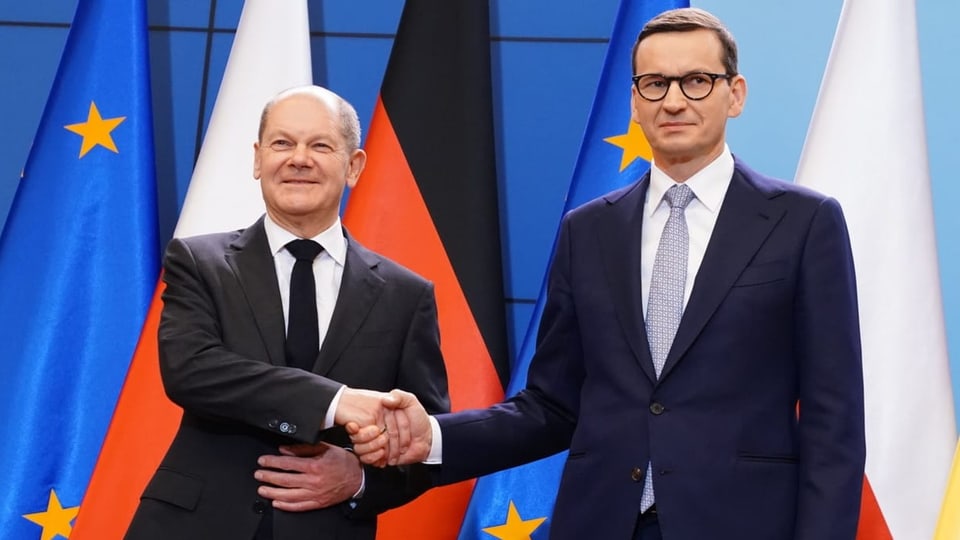contents
The renowned political scientist Ivan Krastev explains which key experiences the West lacks and what the East has ahead of it. The Ukraine war is now leading to a reorganization of forces in Europe.
It will be almost a year since the Russian army invaded Ukraine. The consequences are devastating: entire cities have been destroyed, fields and houses have been mined, and millions have fled. The war is not only changing Ukraine, but all of Europe, says Ivan Krastev. The East has an advantage: “We know that everything can change, everything.”
Legend:
“We know that everything can change”: Demonstration against the war in Ukraine in Kraków.
IMAGO / NurPhoto
The renowned political scientist was 25 when his home country Bulgaria implemented the system change in early 1990. “Communism in the 1980s was extremely stable. You didn’t like it, but you could adapt to it.” Everything changed within a few months. “This experience is fundamental. We cannot predict the future, anything is possible.”
Existence of Poland in limbo
These two experiences – 40 years of dictatorship and a rapid coup – would have shaped the people of Eastern Europe. Those who benefited from the situation, but also those who suffered from it, would have lost their jobs forever or spent years in prison. According to Krastev, it is not possible for the West to understand the East without having had these experiences.
For years, the Poles and the Balts have warned the West about Russia, but the West has not heard them.
Five of the six founding states of the European Economic Community EEC – the forerunner of today’s EU – were former or still active colonial powers. “The governments of these states were used to the fact that their votes carried weight,” says Krastev.
Eastern Europe, on the other hand, was largely determined by others, not only during the Soviet era but even before. Poland is a good example. With almost 40 million inhabitants, the most populous member of Eastern Europe in the EU used to be a plaything of the great powers.
The existence of Poland was often in limbo. The national anthem begins with the line “Poland is not lost yet”. Krastev asks: «Can you imagine this phrase in the French anthem?»
Long-term effects of rapid Westernization
Because the political leaders of Central and Eastern Europe wanted to “return to Europe” as quickly as possible after the collapse of communism, they did everything to imitate the West: the West set the direction, the East followed. According to Krastev, from a western point of view, things went well for many years.

Legend:
Not always at eye level: Chancellor Olaf Scholz (left) shaking hands with Poland’s Prime Minister Mateusz Morawiecki
EPO/CLEMENS BILAN
But in this way, many Eastern European countries would not only have lost the best people because they migrated to the West, but often also their identity. This has led to resentment towards authorities and Western principles.
Ukraine war leads to a new reorganization of forces
What the Eastern European countries all shared was the fear of their big neighbor to the east. “For years, the Poles and the Balts warned the West about Russia, but the West didn’t listen,” Krastev said. That has changed. The war in Ukraine is leading to a reorganization of forces within Europe and the EU.
In particular, the role of Poland has changed. According to Krastev, Ukraine’s neighbor has the greatest influence in Kyiv alongside the USA and Great Britain.
An expression of this new self-confidence is the demand made on September 1, 2022 to Germany for reparations amounting to 1.3 trillion euros for the losses suffered in the Second World War. Exactly 83 years after the German Reich invaded Poland. Coincidence? Hardly likely.

